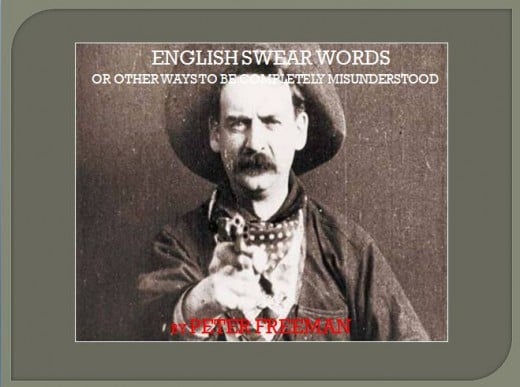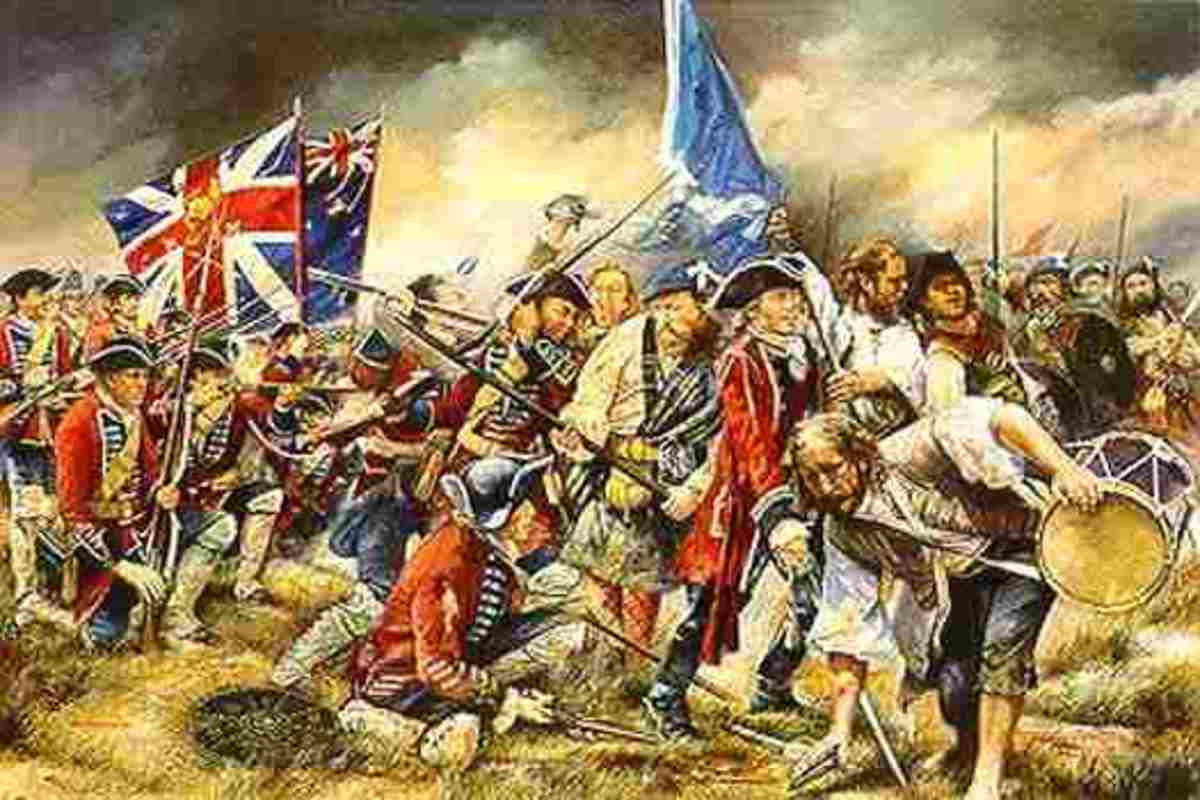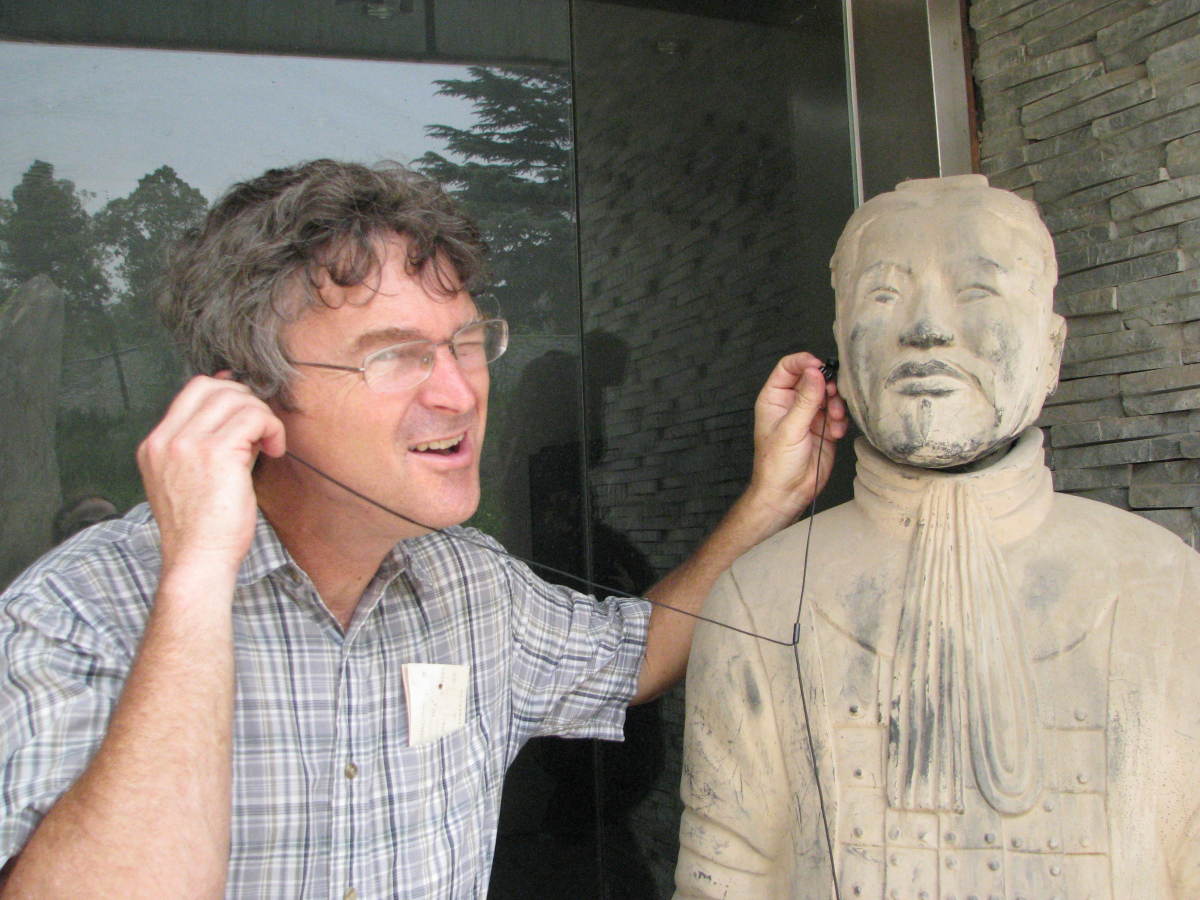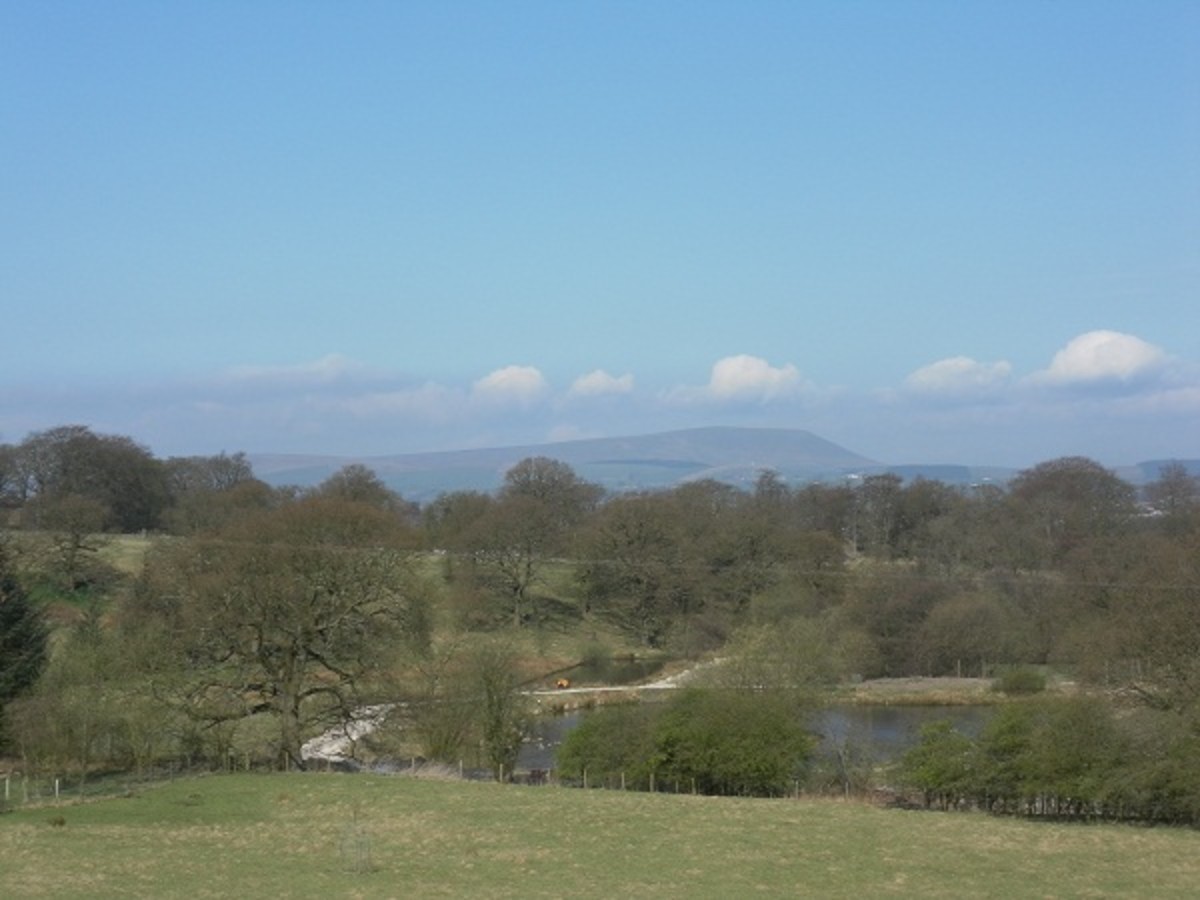History of the things we say
The English language is full of peculiar phrases that seem to bare no relation to the meanings attached to those phrases. How those phrases came to be is a fascinating view of how a language develops, it is also a glimpse into history. Not the history of Kings and governments, not the usual tales of war, conquest and misery that students of the past have to plough through. The history of a language tells us of how the ordinary folk lived and survived in conditions we can only imagine. The phrases that have come down to us, still in use today, reveal much about the times long past. Though not necessarily that long ago;
Up until I was five years old, before my parents had their own house, we lived with my grandparents in the Welsh town of Llanelli. In the town was a factory making copper wire, commonly referred to as the Copperworks. The copper had to be cleaned before being spun into wire and the acid used was the urine of the townsfolk. This was a practice that had been going on since the industrial revolution. Prior to that urine was used to tan animal skins; urine was a commodity to be bought. In Llanelli the man from the Copperworks was known as “Sioni Pisho” Sioni Welsh equivalent of Johnny, Pisho Welsh slang for urine. He would come around with his cart and pay a half-penny for a bucket. If that was the only way you could make money then you were “Piss poor” and if you were so poor that you couldn’t afford the bucket, then you “Didn’t have a pot to piss in” The common phrases of today tell us so much about the lives of yesterday.
Bathe whether you need to or not
English is not only the widest spoken language in the world; it is also the most modern. It is considered to date from the 13th Century but English back then would be like a foreign language to the people of today. It wasn’t until the 16th Century that English began to sound somewhat like the English of today. That was also the period when today’s popular phrases came into existence.
It was popular wisdom that a person should only bathe twice in a lifetime, when you are born and when you die. Following the example of Queen Elizabeth the first who bathed twice a year, whether she needed to or not, it became fashionable to take an annual bath in May. It was customary to marry in June. This would likely cause any babies to be born in the spring of the following year, improving their chance of survival in the cold northern climate. Because, by June, the bride would be starting to smell, it became customary for her to carry a bouquet of flowers to hide the body odor. The custom has continued to this day even though brides tend to smell a lot sweeter any time of year.
Bathing was done in a tub. The man of the house went first, followed by the sons. The Mother bathed after the men and she was followed by the daughters and then the smaller children. By the time it got to the baby the water was so dirty you could lose someone in it. Be careful, you might throw the baby out with the bathwater.

As poor as dirt
Houses had thatched roofs. Straw packed tightly together and piled high formed a watertight shelter and also helped to keep the house warm. It was also a very comfortable hang out for the animals. Cats and dogs would sleep up on the roof. When it rained the thatch would get slippery and the animals would fall off. It would “Rain cats and dogs”
The thatched roof was also a comfortable home for mice and every kind of bug. People didn’t have ceilings so there was always the danger of those creepy crawlies and their droppings falling on you while you slept. Beds tended to have a post at each corner with a canopy draped across the top to protect you from the more disgusting inhabitants of your home. Today a four poster bed is considered to be elegant though its origin is not.
As a young man I worked on farms in my native Wales. On one farm the Farmer built a barn and decided it would have a dirt floor. First we dug up all the dirt to a depth of three Spits. A Spit is the depth of a spade, usually about twelve inches. Then the dirt is sieved, it is shook through a sieve or “Riddle” to remove any stones or roots. The idea is to pack the earth tightly with no chance of aeration. This will prevent anything from growing as well as providing a solid floor. To achieve this we crammed in a herd of sheep, they stayed in there all night. The next morning, we let them out then we swept the floor clean. We had a tight packed, solid and even floor.
There was a time when it wasn’t just the barn; the house had a dirt floor. The more affluent people had slate on their floors, they referred to the less fortunate as being “Dirt floor poor” or “As poor as a dirt floor” These descriptions are still used today as in; “Dirt poor” or “Poor as dirt” Those slate floors were not without their drawbacks, when they got wet they were slippery. The answer was back on the farm. After the wheat is harvested the grains are separated from the stem in a process known as “Threshing” The stem of the plant is dried and is commonly referred to as Straw or “Thresh” The more well-to-do would take some of this thresh back to their homes and spread it over the slate to prevent slipping. To prevent the thresh from spilling outside the door, a wooden barrier would be placed there. This was called the “Thresh hold”
Bring home the bacon and Chew the fat
Most people couldn’t afford meat. If they could then it was most likely to be pork. A large slice, called a “Switch” would hang in the living room and would be a sign of wealth. It was a proud thing for a man to show he could “Bring home the bacon” When guests would arrive a piece of the switch would be cut off and shared, then they would all sit around and “Chew the fat”
On the wagon
Britain has a proud tradition of free speech. This is celebrated by the institution known as “Speaker’s Corner” At the heart of London’s west end lies Hyde Park. On the north east corner, every Sunday, people of all kinds and of all viewpoints gather to speak their mind. Anything is permitted but the tradition is that all speakers should stand on something at least six inches off the ground, a soapbox has always worked well for that. Why Hyde Park? Why stand above the ground? If you look across to the center of the very wide street next to the Park, (Edgeware Road) you will see a large Marble Arch. The arch was once an entrance to the Royal residence of Buckingham Palace. Before the arch was there Tyburn Tree stood on that spot. Tyburn Tree was a gallows, built in the days of public executions it was made in three rows of nine. Twenty Seven people could be hanged at the same time. Before they faced the hangman they were allowed to say their last words. They could say whatever they liked, after all not much more could be done to them so they had complete freedom of speech. So the speakers at Speakers Corner stand on a box ready for the long drop and insist on their right to speak freely and without hindrance.
About two miles away from marble Arch is the central criminal court of the United Kingdom, the Old Bailey. In the days of Tyburn Tree it was Newgate Prison, the place where the convicts were held prior to execution. Just before leaving Newgate, the prison guards would give each prisoner a mug of Gin. This would be their last drink ever and was the “One for the road” the road to the gallows. They would then be chained to a cart and driven through the streets of London. On the way, people in the crowd might offer them a drink. The guards would stop them, they were not allowed to drink once they were “On the wagon”
From the 16th Century to the 19th Century, the wealthier people had fresh drinking water delivered to them in a wagon. If you were not drinking you were “On the water wagon” and that is where the saying really came from. But the urban legend above is a lot more fun to write about
A story of the Wake and the power of alcohol to raise the dead

To your health, let's drink till we wake
Europeans have always been fond of Beer and for good reason; alcohol will kill most bacteria and was healthier to drink than the local water. So we take a drink “To your health” The Inns and Taverns would usually make their own beer and a lot of different things would get thrown in, no one knew exactly what they were drinking and some drank till they didn’t care. Many a man, or woman, was found comatose and presumed dead. Just to be sure the body would be kept in the house for three days, on the third day there would be a party if that didn’t rouse the body they must be dead for sure. That’s why the party was called a “Wake” if you wanted to be absolutely certain you hadn’t buried them alive the departed would have a small space in the coffin lid with a string going from the wrist of the corpse through the ground, to a bell. If they woke up in the grave they could pull the string and be a “Dead Ringer” The well-to-do might even hire someone to watch the grave all night, working the graveyard shift.
There is much more to history than the ambitions of Kings and the machinations of governments. The ordinary everyday folk worked hard and often worked themselves to death. Their stories are still amongst us in poetry, in folk songs and in the crazy things we say.







